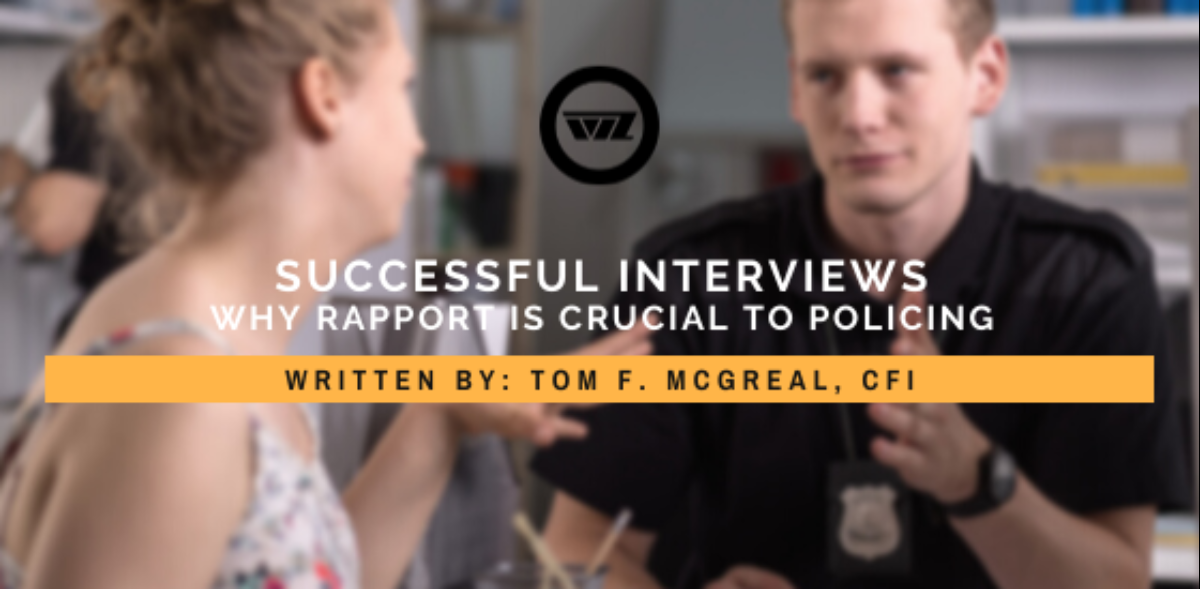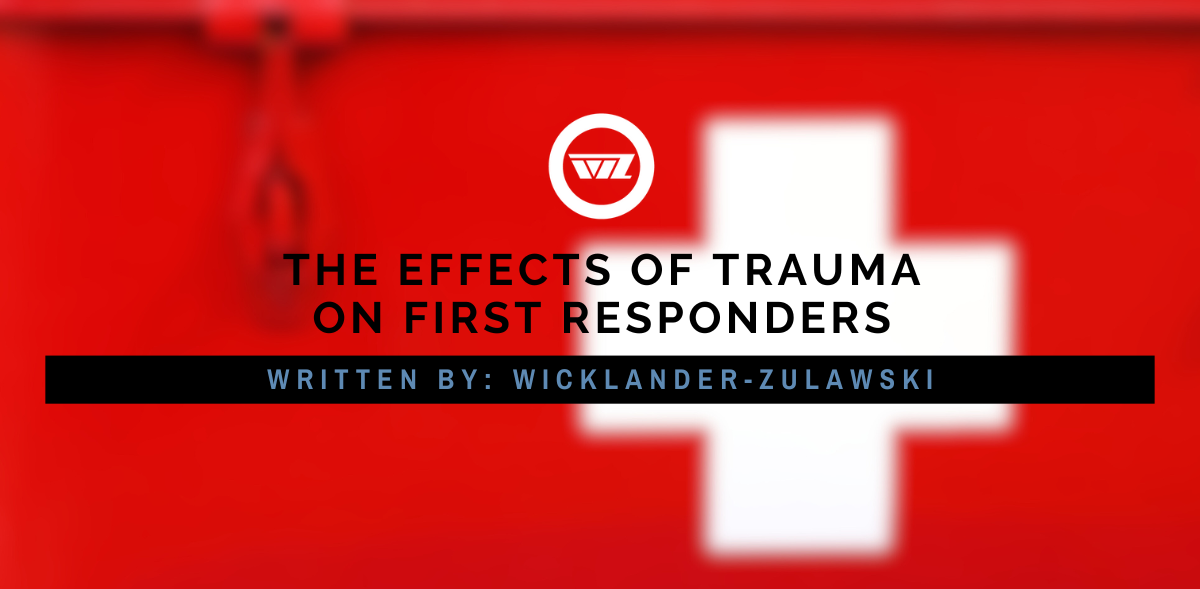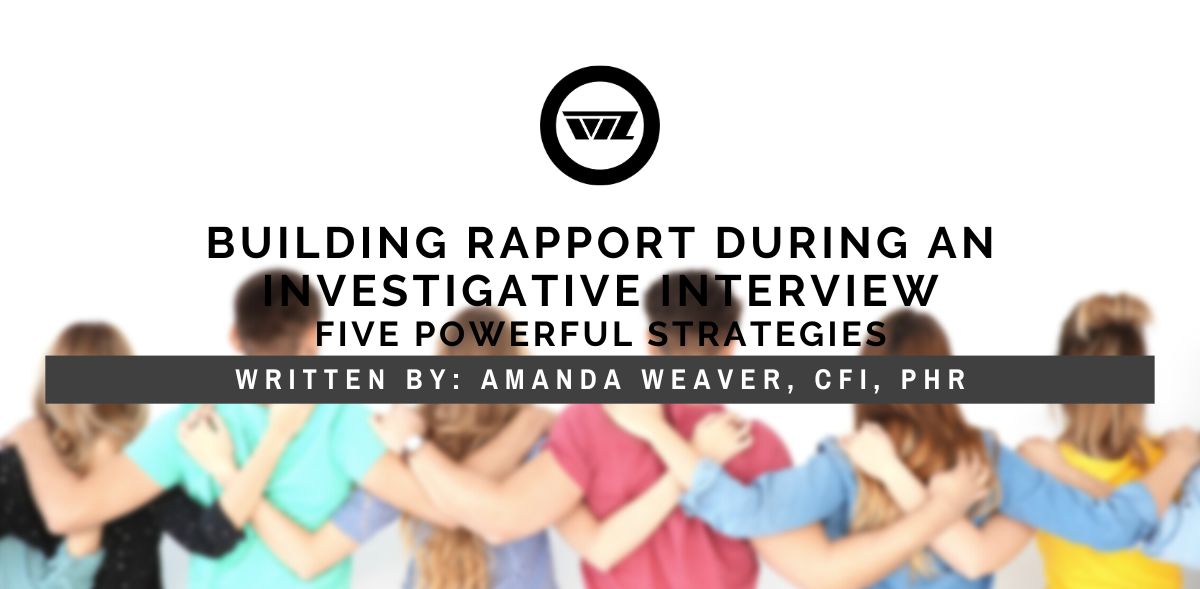On a cold winter morning, Chicago detectives responded to a homicide that occurred on a public street on the west side of the city. The assigned detectives conducted a canvass of the neighborhood seeking witnesses to the occurrence. Detective Jackie Mok, under the ever-watchful eyes of nearby onlookers, knocked on the door of a local resident. An elderly woman responded to the door. Detective Mok began to identify herself as the woman shouted, “I didn’t see anything.” Detective Mok, in visible discomfort, complained about the cold weather and asked if she could step in the hallway to warm herself. After a brief hesitation, the woman agreed. While standing in the foyer, Detective Mok asked the woman, “How can you stand living with all this violence? You must be in constant fear.” An immediate connection was made between Detective Mok and the woman. After a short conversation, the woman shouted towards the interior of her home, “Belinda, come and tell this lady what you saw.”
Why do citizens respond to some officers and not to others?
The answer may be in the approach. Successful interviews are often conducted by officers who are sincere, respectful, and go out of their way to put a witness at ease. Recognizing and overcoming common fears is paramount. Detective Mok recognized that she was not going to obtain any information from a woman who did not want to be seen talking to the police. Seeking shelter from the cold was a tactful way of obtaining privacy. Once inside the foyer, Detective Mok continued to build rapport with the potential witness. She expressed an understanding of the woman’s apprehension. It was at this point that a bond was created between the two women. Detective Mok was no longer a government official but a person who was sincere, respectful, and concerned about the witness’s fears and concerns.
A vast majority of citizens want to cooperate with the police but are fearful for their safety and the safety of their families. Many times, these individuals are concerned about testifying in court. Few persons will divulge detailed information to a public official in full view of others. Some persons don’t want to get involved. Unless these fears and concerns are relieved very few interviews will be successful.
Developing Rapport
Police officers and investigators are often unaware of routine practices that inhibit successful interviews. I would like to share a few lessons learned while working over thirty years in law enforcement. Knowledge may be gained from many of the topics I discuss whether the reader is employed in the public or private sector.
Officers should always identify themselves leaving no doubt about their identity. I attempt to develop rapport and lessen the witness’s fear of public officials by giving my first and last name prior to identifying my position (e.g. “Hello, my name is Tom McGreal. I am an investigator assigned to the Cook County State Attorney’s Office.”) In many instances, the person will then begin to ask questions, such as “what happened?” Witnesses are often frustrated when it appears that they are giving answers to numerous questions and getting no answers in return. If possible, answer reasonable questions with general responses. Never give specific answers regarding the crime or crime scene. This may jeopardize the case when a suspect is questioned. Respectfully explaining to the witness why he/she can not receive more specific information is often accepted. Most citizens want to cooperate with the police and understand the basic concept of police procedure.
Interviews should not be conducted while wearing sunglasses. The sunglasses create a barrier, inhibiting the person interviewed from looking into an officer’s eyes and forming an opinion regarding his/her sincerity and trustworthiness. The practice also reinforces the image of a public official who has little concern for the citizen’s welfare. Also, small practices, such as wiping one’s feet on a doormat or the removal of a hat when entering the home of a witness may display a feeling of respect.
I recall an incident that occurred when I was a child. A heating malfunction, originating near a basement oil tank, occurred in our home. As my father was attempting to stop the fire at the source, my mother called the fire department. The responding firefighters entered our home at the front door proceeding to the basement. Foam was used to prevent a potential disaster, causing the house to be filled with smoke. The smoke damage was devastating. The interesting result of the occurrence was the opinions of my father and mother regarding the event. My father believed the firefighters caused the resulting damage because of their use of foam. My mother had a completely different view of the incident. “Tommy, every fireman wiped their feet at the door as they came into the house.” To this very day, my mother has a positive view of the responding firemen. How powerful, but effortless, a gesture can be. How much effort would it take for a male investigator to remove his hat when speaking with a woman, entering an elevator, or even a home? The act doesn’t have to be obvious. Merely running your hands through your hair after removing your hat would effectively make the act appear natural. The message of respect would be sent, even if at a subconscious level.
Because of the authority of the investigator’s office, many interviews begin with a subject voicing resentment over the lack of responsiveness by other investigators in non-related issues. Do not dismiss these concerns. This is a critical time in the investigator’s quest for rapport. The perception of the person interviewed is his or her own reality. Ignoring their complaints may maintain the belief that investigators are only concerned about gathering information that will satisfy their own needs. Merely taking a few moments to allow the subject to vent their frustrations may be sufficient. The jotting down of information relevant to their complaints will create the impression that the investigator is listening to the grievance. The recording of the subject’s information may even help solve a case, non-related to the issue at hand. At the very least, the investigator will have created the impression that he/she is concerned about the subject’s needs.
When there is a necessity to interview multiple witnesses that are acquainted, each of the interviews should be conducted separately. If not, the interview of the strongest personality will prevail. An example of this may occur when the officer questions the witnesses regarding the height of an offender. Witness number one may say that a person was 6’0”. Witness number two will interject that the person was only 5’7”, convincing witness number one to change his/her own perception of the persons stature. Successful interviews should depend upon individual perceptions of reality, not a compromise between opposing views. Even if an interview is conducted in a witness’s home, it may be necessary to request separate interviews. Hopefully, the interviewing officer/investigator has established enough rapport that the request will be granted. It may also be necessary to request that other distractions be eliminated (e.g. television, radio, screaming children.)
If possible, an interview should be conducted on the same level as the person interviewed. I find that my best results were obtained when both the witness and I were seated. Although, there have been instances when this was difficult. I, as many officers, have experienced homes that were rife with vermin. In many of these cases, I politely thanked the resident and explained that my back was sore from many hours seated in a car. In some cases, I did sit, realizing the importance of the interview. It is imperative that the officer/investigator does not display revulsion or a feeling that the home is, in some way, a departure from the normal. The main concern is the establishing of a bond which will lead to a successful interview.
Police officers and investigators often respond to homicides or serious batteries that occur in taverns, lounges, or other business establishments. If the police response is prompt, as many as fifty to seventy-five patrons may be at the scene of the occurrence. In these instances, the responding officers often secure the premises, believing the offender is still in the immediate area. The responding investigators must begin their investigation prior to eliminating any of the occupants as possible offender(s). Privacy is limited and cooperation is scarce. In cases such as these, the initial interview often suggests that the only occupant who was not in the bathroom at the time of occurrence is lying on the floor of the bar room. Former Chicago Detective/Trainer James Clemens often speaks to this issue, believing that privacy is often in the eyes of the person interviewed. During his training sessions, Detective Clemens notes that just stepping into an unoccupied corner, positioning the witness with his back to the crowd, and the exaggerated lowering of one’s voice can give the illusion of privacy and the appearance that the police officer/investigator is concerned about the welfare of the person interviewed. In some instances, this is all that is needed to coax a reluctant witness to cooperate.
It is very difficult to conduct successful interviews within the sight and hearing of others. If privacy, or the illusion of privacy, cannot be obtained, the interviewing officer or investigator should attempt to obtain from a reluctant witness as many verified identifiers as possible, i.e. driver’s license, social security card, birth certificate, photo-identification or any official document that will verify their identity. Future interviews may be conducted in a more suitable environment. The interviewer should also supply a reluctant citizen with a business card, providing his own identity, place of employment, and telephone number. The witness may only fear talking in front of others. In some cases, witnesses have attempted to contact investigators even before they returned to their office.
The ability to develop and maintain rapport seems natural to some but elusive for others. Those investigators who are successful seem to have similar attitudes. Like Chicago Detective Jackie Mok, they are sincere, respectful, and concerned about the subject’s fears and concerns. They have the ability to take themselves out of the role of a government official and assume the role of a person respected. Those investigators who have problems developing rapport may have to look at their own attitudes. What perception are you creating when conducting an interview?
Thomas F. McGreal is a Certified Forensic Interviewer employed by Wicklander-Zulawski & Associates. He was previously employed by the Cook County State’s Attorney’s Office as an investigator in the Post Conviction / Conviction Integrity Unit. Thomas F. McGreal was also employed by the Chicago Police Department, assigned to the Detective Division.







December 15, 2019, 4:57 pm
Great article. I hope it’s taught to newly promoted detectives.